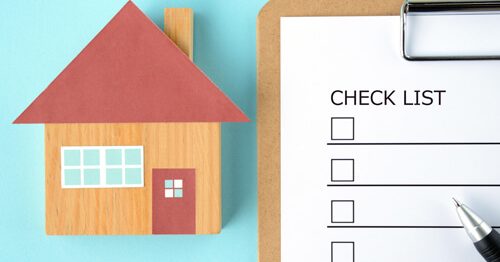After buying a home, most people pay very little attention to their homeowners insurance. But if you don’t address household changes with your insurance agent as a matter of course, you could be shortchanging yourself. On the one hand, your home and possessions may no longer be fully covered, which can lead to an unwanted and unexpected surprise if you file a claim. Additionally, you could be missing out on potential discounts that might be available to you and paying a higher premium than needed.
Here are seven scenarios that warrant a call to your insurance agent to discuss how they affect your homeowners insurance policy.
1. Increasing Your Home’s Square Footage
Anytime you add to your home’s interior or exterior square footage, it increases your home’s value. No matter whether you create an extra bedroom, add one more bathroom, put in a back porch, attach a garage or otherwise increase your home’s size, you want to protect your investment by making sure your homeowners policy covers the end result of your project.
And don’t forget: Over time, your home’s value changes with fluctuations in the market whether you add square footage or not. Even if you have no plans to sell, monitor going prices around you to make sure your homeowners policy remains aligned with property value increases (or decreases).
2. Renovating Your Home
Even if your home improvement project doesn’t add usable square footage, it can still mean your existing homeowners policy doesn’t fully cover the new value of your home or possessions. According to Remodeling magazine’s 2023 Cost vs Value report, kitchen remodels can add anywhere from $22,963 to $48,9913 to your home’s resale value, while bath remodels can increase it between $16,413 and $28,203.
On top of your home’s higher value, many remodeling projects include new appliances, fixtures or furniture. In case of fire, theft or damage, you want to make sure that you’ve declared an updated replacement value that covers both the structural improvements and new possessions associated with your project.
Adding onto your residence, enjoying property appreciation or renovating your home might bump your premium up a little bit, but it’s worth it to ensure you have adequate coverage in the event you need to file a claim.
3. Securing Your Home
Other home improvements can potentially reduce your premium. Let your agent know about anything that helps protect or secure your home from theft, damage and other risks, including upgrades such as:
- Adding deadbolt locks
- Installing a security system
- Putting in a fire alarm system
- Updating the electrical or plumbing system
4. Moving a Family Member in or out
Homeowners insurance policies provide liability coverage to all family members and other dependents living in the home. In other words, if a household member accidently harms someone else or their property, the policy will cover it. In order to avoid any unexpected coverage gaps, it’s always smart to let your agent know about significant changes to the makeup of your household, such as:
- You welcome a new baby
- An elderly parent moves in with you
- You invite a friend to live in your home
- An adult child gets a place of their own
- An adult child moves back in with you
- You get married or divorce your spouse
5. Bringing Home a New Dog
Babies, adult children, spouses, parents and in-laws aren’t the only additions or departures to the household that should warrant notifying your insurance agent. The same is true for a change in your dog ownership status.
According to the Insurance Information Institute (III), both “homeowners and renters insurance policies typically cover dog bite liability legal expenses, up to the liability limits.” But not all breeds are covered, and if you don’t advise your agent about a new dog or its breed, it could affect your coverage.
6. Acquiring or Selling an Expensive Asset
Maybe you haven’t added people or a dog to your household, but you’ve bought a new piece of fine jewelry or art, invested in a valuable coin or stamp collection or splurged on a rare antique. Give your insurance agent a call with this news to find out whether it’s within your coverage limits.
Depending on the value of a particular asset, you may need to increase your limits or take out a rider or endorsement, which is an add-on to your policy that expands its coverage. Likewise, if you dispose of a valuable asset, let your insurance agent know because it could decrease your need for higher limits or a rider.
7. Starting Your Own Business or Retiring from Work
Your insurance agent also needs to know if your work situation changes, specifically if you start your own home-based business. According to III, the typical homeowners policy provides only $2,500 for business equipment. A discussion with your agent can help you determine if your business requires more insurance than that for equipment, inventory or liability coverage.
Finally, news of your retirement could lower your premium because it typically means you’re at home more frequently. Insurance companies often view this as lowering the risk of a home being burglarized or significantly damaged due to an unexpected event, such as a burst pipe.






I agree that you should update your homeowners insurance after making any sort of home renovation to avoid any issues if you find yourself needing to file a claim.
Home insurance may need to be updated for various reasons. This article provides 7 examples of scenarios of when renewals are necessary. Thanks for sharing!